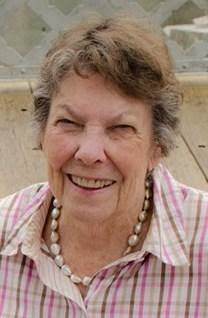Jan brings us our
RevGal's Friday Five today, belatedly: "Have you ever been late? List five ways you have been late, remembering it is
Never Too Late To Love!"
1. Of course I've been late. For years, it puzzled me why I was consistently late for one particular get-together. So often late to arrive, I'd gotten teased about it. I finally sorted things out when I admitted to myself that I really, really, REALLY didn't want to be there. I hated attending that annual event and was late because everything in me was resisting. I felt obligated and went a few more times, always watching myself to see what was going on. Being there never got better; in fact, it got worse, to the point that I started dreading it weeks — nay, months — before the event. Now I honor myself enough not to put myself through that anymore.
 |
| Lake Junaluska |
2. United Methodists meet annually at regional conferences, with each church sending one lay person for every pastor. My conference meets in June at Lake Junaluska in North Carolina. The two of us from my small church were traveling in my car, so naturally I was driving. We were running late, and I was driving a bit over the speed limit. (You see where this is going, don't you?) I was not enough over the limit to be pulled over, normally. But the woman with me pointed out the window at the police car as we passed, and the cop flipped on his lights and came after us. After I got the ticket, my friend said quietly, "I think I'm the reason you got that ticket." Well, not completely. I was, after all, speeding.

3. Late for work, yup. When I was a single mother of three after my divorce, I was often two minutes late to work. Truly, two minutes. But being such a stickler for honesty, I would work late to make up for it. Often I worked two HOURS overtime, and that's without any additional compensation of my minimum salary at the time. My boss knew it, but those two MINUTES bugged him. He looked for any excuse to complain about my work. One day, he fussed and complained about my overloaded desk, and I stayed until 11:00 at night to complete everything. In my defense, I want you to know that when I quit, it took THREE people to cover my job responsibilities. Yup, three. I think they may have missed me.

4. Night owls stay up late. I remember when my ten-year-old son wanted to stay up all night. We played Battleship (the board game, the original) for hours, and I never beat him once. When light began to appear at our windows, he was overjoyed. I can still see his ear-to-ear grin and his bouncy joy, even though he is now 50 years old. I understood exactly how he felt, since I have always preferred being awake late into the night. I really am a night owl and thought I'd be able to do as I pleased when I grew up. But then I had to work, and I had children to tend, and ... and ... and. Maybe when my children were young it was the quiet that beckoned me. Maybe it's just me. Now I'm retired and can sleep late to compensate for my late nights reading a book or writing a blog post or surfing the Web. I'm just on a different schedule than the rest of the world.
5. I almost hate to share the worst occasion of my lateness, but I think I'll do it. This happened many years ago. I woke up one Sunday morning and looked at the bedside clock. It was five minutes 'til 11:00 a.m. For those of you who may not know, I'm an ordained minister. When, boys and girls, is the "sacred hour" for most churches? Oh, yes, 11:00 on Sunday morning. I was pastoring a church (I'm now retired), and it was five minutes before the weekly service started. Five minutes! I couldn't even dress in time, much less drive to church and preach at the appointed hour. I grabbed the phone, told the parishioner who answered the phone in my office that I wouldn't be there, and they actually managed to do the whole service without me — all at the last minute. (Rather humbling, if you think about it.)
The good news? There was a first-time visitor there that morning, and she told me later she was so impressed with the preacher's honesty (that I admitted I had overslept) that she decided to continue coming. I'd never have known it made her smile, except that she became my friend and laughed when she told me the story.














































